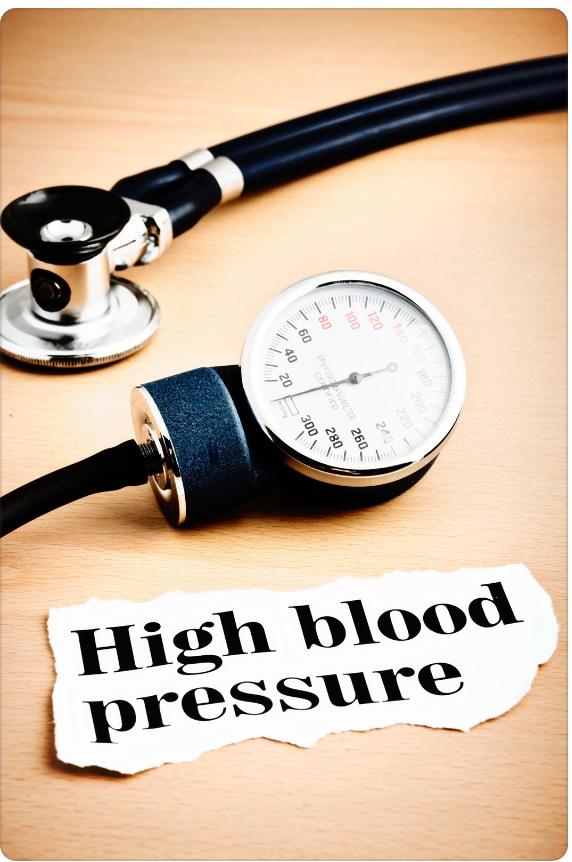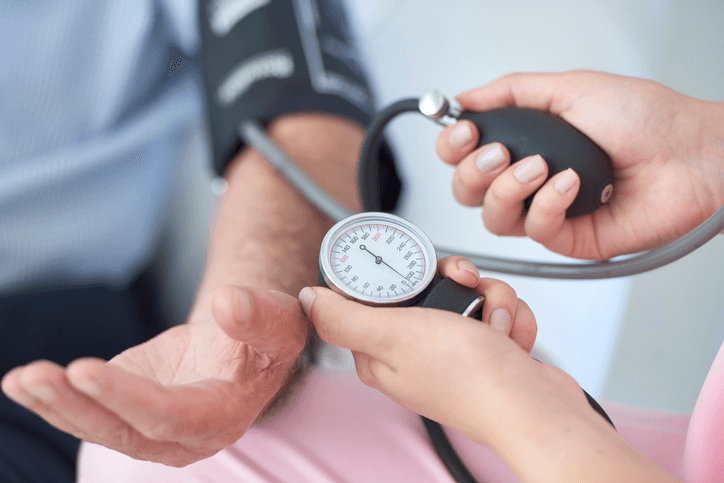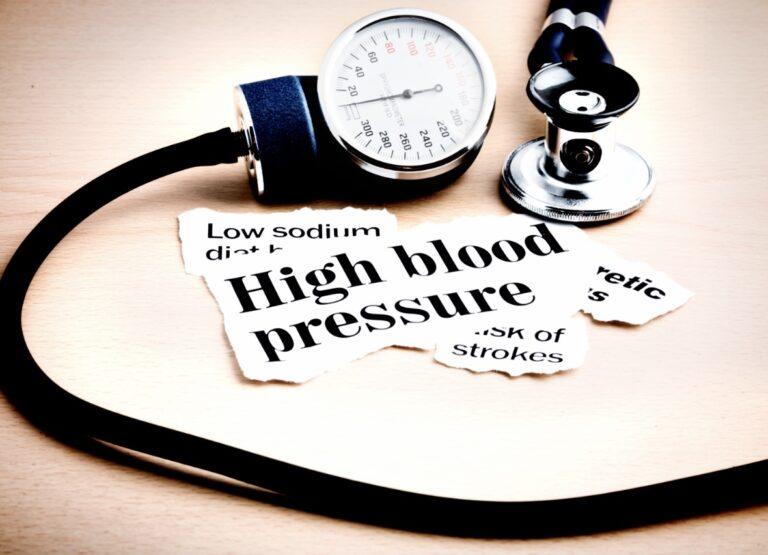
High blood pressure, also known as hypertension, is a common health condition that affects millions of people worldwide. If left untreated, it can lead to serious complications such as heart disease, heart attack, stroke, and kidney problems. Fortunately, there are several types of medications available to help lower blood pressure and manage this condition effectively. In this comprehensive guide, we will explore the best types of medications for blood pressure, their mechanisms of action, and potential side effects. We will also discuss lifestyle changes that can complement medication therapy in controlling blood pressure.
Lifestyle changes for blood pressure management
Before delving into the various types of medications for blood pressure, it is important to emphasize the role of lifestyle changes in managing this condition. Adopting healthy habits can significantly reduce the need for medication and improve overall cardiovascular health. Here are some key lifestyle changes that can help control blood pressure:
1. Healthy diet
Eating a balanced diet rich in whole grains, fruits, vegetables, lean proteins, and low-fat dairy products is essential for maintaining optimal blood pressure levels. Incorporate foods that are low in sodium and high in potassium, such as bananas, spinach, and sweet potatoes, as potassium helps counteract the effects of sodium on blood pressure.
2. Salt restriction
Reducing sodium intake is crucial for individuals with high blood pressure. Limit your consumption of processed and packaged foods, as they often contain high amounts of sodium. Instead, opt for fresh, whole foods and use herbs and spices to season your meals.
3. Stress management
Chronic stress can contribute to elevated blood pressure levels. Engaging in stress-reducing activities such as meditation, yoga, deep breathing exercises, and regular physical activity can help lower blood pressure and promote overall well-being.
4. Weight management
Maintaining a healthy weight is essential for blood pressure control. If you are overweight or obese, losing even a small amount of weight can have a significant impact on lowering blood pressure. Combine regular physical activity with a balanced diet to achieve and maintain a healthy weight.
5. Regular exercise
Physical activity is a cornerstone of blood pressure management. Aim for at least 30 minutes of moderate-intensity exercise most days of the week. This can include activities such as brisk walking, cycling, swimming, or dancing. If you are unable to dedicate 30 minutes at once, breaking it into three 10-minute sessions throughout the day can be just as effective.
6. Limit alcohol consumption
Excessive alcohol consumption can raise blood pressure levels. If you choose to drink alcohol, do so in moderation. For men, this means up to two drinks per day, and for women, up to one drink per day. It’s important to note that excessive alcohol intake can negate the potential benefits of certain blood pressure drugs.
Types of blood pressure medications
When lifestyle changes alone are not sufficient to control blood pressure, healthcare professionals may prescribe medication to manage the condition effectively. Several classes of medications are commonly used to treat high blood pressure, including diuretics, ACE inhibitors, ARBs, calcium channel blockers, beta-blockers, and renin inhibitors. Let’s explore each of these medication classes in detail:
1. Diuretics
Diuretics, also known as water pills, are often the first-line treatment for high blood pressure. These medications work by increasing the excretion of sodium and water from the body, reducing the volume of blood and lowering blood pressure. There are different types of diuretics, including thiazide diuretics, loop diuretics, and potassium-sparing diuretics.
- Thiazide diuretics: Thiazide diuretics, such as chlorthalidone and hydrochlorothiazide, are commonly prescribed for blood pressure management. They help the body eliminate excess sodium and water, leading to a decrease in blood volume and subsequent blood pressure reduction
- Loop diuretics: Loop diuretics, like furosemide and bumetanide, are often used in more severe cases of hypertension or in individuals with impaired kidney function. These diuretics work by blocking the reabsorption of sodium and chloride in the loop of Henle, promoting water and electrolyte excretion
- Potassium-sparing diuretics: Potassium-sparing diuretics, such as spironolactone and amiloride, help retain potassium while still promoting the excretion of sodium and water. This class of diuretics is often used in combination with other diuretics to minimize the risk of potassium depletion
It’s important to note that diuretics may cause side effects such as electrolyte imbalances, increased urination, and muscle cramps. Regular monitoring of electrolyte levels is necessary to ensure proper management.
2. ACE inhibitors
ACE inhibitors are medications that block the action of an enzyme called angiotensin-converting enzyme. This enzyme plays a role in the production of angiotensin II, a potent vasoconstrictor that narrows blood vessels and raises blood pressure. By inhibiting the formation of angiotensin II, ACE inhibitors help relax and dilate blood vessels, thereby reducing blood pressure and improving blood flow. Some commonly prescribed ACE inhibitors include enalapril, lisinopril, benazepril, perindopril and ramipril.
ACE inhibitors are especially useful for those who also have chronic kidney disease, cardiovascular disease or diabetes.
Potential side effects of ACE inhibitors include a persistent dry cough, dizziness, and an increased risk of hyperkalemia (high blood potassium levels). Pregnant women should avoid ACE inhibitors, as they can be harmful to the developing fetus.
3. ARBs
ARBs, or angiotensin II receptor blockers, work by blocking the action of angiotensin II at its receptor sites. This prevents the vasoconstrictive effects of angiotensin II, leading to vasodilation and a decrease in blood pressure. ARBs are often prescribed as an alternative to ACE inhibitors for individuals who cannot tolerate the persistent dry cough associated with ACE inhibitors. Commonly prescribed ARBs include losartan, valsartan, and irbesartan.
Side effects of ARBs may include dizziness, headache, and an increased risk of hyperkalemia. Similar to ACE inhibitors, pregnant women should avoid ARBs due to the potential harm to the developing fetus.
4. Calcium channel blockers
Calcium channel blockers (CCBs) work by blocking the entry of calcium into smooth muscle cells in the walls of blood vessels and the heart. By inhibiting calcium influx, these medications relax and widen blood vessels, reducing peripheral resistance and lowering blood pressure. CCBs are classified into two main types: dihydropyridines and non-dihydropyridines.
- Dihydropyridines: Dihydropyridine CCBs, such as amlodipine and nifedipine, primarily target the smooth muscle cells of blood vessels, leading to vasodilation and reduced blood pressure. These medications are often used in combination with other antihypertensive agents.
- Non-dihydropyridines: Non-dihydropyridine CCBs, like diltiazem and verapamil, not only relax blood vessels but also have additional effects on the heart. They can slow down the heart rate and reduce the force of contraction, making them particularly useful in individuals with certain heart conditions.
Side effects of CCBs may include dizziness, flushing, and ankle swelling. Some individuals may experience constipation with the use of non-dihydropyridine CCBs.
5. Beta blockers
Beta-blockers, also known as beta-adrenergic blockers, block the effects of the sympathetic nervous system on the heart. It does this by blocking the effects of adrenaline (epinephrine) and noradrenaline (norepinephrine) on the heart and blood vessels. By reducing the heart rate and the force of contraction, beta blockers lower blood pressure and decrease the workload on the heart. They are often prescribed for individuals with certain heart conditions, such as coronary artery disease or heart failure. Commonly prescribed beta blockers include metoprolol, propranolol, bisoprolol and atenolol.
Side effects of beta-blockers may include fatigue, dizziness, and sexual dysfunction. People with diabetes should be cautious when taking beta blockers, as they can mask the symptoms of low blood sugar.
6. Renin Inhibitors
Renin-inhibitors are a relatively new class of medications used for the treatment of hypertension. These drugs work by inhibiting the action of renin, an enzyme produced by the kidneys that plays a key role in the regulation of blood pressure. By blocking the production of angiotensin I, renin inhibitors prevent the subsequent formation of angiotensin II, leading to vasodilation and reduced blood pressure. Aliskiren is the only renin inhibitor currently available.
Side effects of renin inhibitors may include diarrhea, cough, and angioedema. Renin inhibitors should not be used in combination with ACE inhibitors or ARBs, as this may increase the risk of kidney problems.
7. Other Medications
In addition to the main classes of high blood pressure medications mentioned above, there are several other medications that may be prescribed in specific cases or in combination with other drugs. These include aldosterone antagonists, alpha-blockers, alpha-beta blockers, central-acting agents, and vasodilators.
- Aldosterone Antagonists: Aldosterone antagonists, such as spironolactone and eplerenone, block the action of aldosterone, a hormone that promotes sodium and water retention. These medications are often used in individuals with difficult-to-control blood pressure or those with heart failure.
- Alpha Blockers: Alpha-blockers, including doxazosin and prazosin, work by blocking the effects of certain hormones on the smooth muscle cells of blood vessels, allowing them to relax and lowering blood pressure.
- Alpha-Beta Blockers: Alpha-beta blockers, such as carvedilol and labetalol, combine the actions of both alpha and beta blockers. They are often prescribed for individuals with high blood pressure and concurrent heart failure.
- Central-Acting Agents: Central-acting agents, such as clonidine and methyldopa, work by reducing the activity of the brain signals that regulate blood pressure. These medications are usually reserved for individuals with resistant hypertension or those who cannot tolerate other antihypertensive agents.
- Vasodilators: Vasodilators, such as hydralazine and minoxidil, directly relax the smooth muscle cells in the walls of blood vessels, leading to vasodilation and decreased blood pressure. They are often used in combination with other antihypertensive medications.
It’s important to note that the choice of medication will depend on various factors, including the individual’s overall health, the presence of other medical conditions, and potential drug interactions. Healthcare professionals will tailor the treatment plan to meet the specific needs of each individual.
Conclusion
High blood pressure is a prevalent condition that requires careful management to reduce the risk of complications. Healthy lifestyle changes, including a balanced diet, regular exercise, stress management, and weight loss/control, are essential for blood pressure control. However, in some cases, medication therapy is necessary to achieve optimal blood pressure levels. Diuretics, ACE inhibitors, ARBs, calcium channel blockers, beta-blockers, renin inhibitors, and other medications are commonly prescribed to lower blood pressure. Each medication class has its unique mechanism of action and potential side effects. It’s important to work closely with healthcare professionals to find the most effective medication or combination of medications to manage blood pressure effectively and improve overall cardiovascular health. By combining lifestyle changes and appropriate medication therapy, individuals with high blood pressure can achieve better blood pressure control and reduce the risk of complications.
Sources
- American Heart Association. Types of Blood Pressure Medications.
- Mayo Clinic. Choosing blood pressure medicines.
- eMedicineHealth. Blood Pressure Picture.
Medical Disclaimer
NowPatient has taken all reasonable steps to ensure that all material is factually accurate, complete, and current. However, the knowledge and experience of a qualified healthcare professional should always be sought after instead of using the information on this page. Before taking any drug, you should always speak to your doctor or another qualified healthcare provider.
The information provided here about medications is subject to change and is not meant to include all uses, precautions, warnings, directions, drug interactions, allergic reactions, or negative effects. The absence of warnings or other information for a particular medication does not imply that the medication or medication combination is appropriate for all patients or for all possible purposes.









